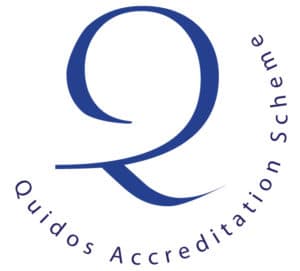We are responsible for ensuring that the quality of work carried out by our members is of a consistently high standard. It is important that Quality Assurance standards are established and maintained throughout every strand of our industry.
This helps maintain the credibility of the EPC as an important document for both cutting carbon emissions and reducing energy consumption in households and businesses within the U.K. It’s vital that these high standards are implemented; both by Quidos Quality Assurance as an accreditation scheme, and you as an energy assessor.
Quality Assurance Requests We will help sustain quality in the industry by regularly asking our members to submit work for Quality Assurance checking. By auditing every one of our members, we can help ensure that energy assessors operating under our scheme are fully aware of the standards and professional conduct expected of them.

As a practicing member of the Quidos Accreditation Scheme you are expected to keep detailed records of all EPCs lodged. These records must be of a professional standard, and enable us to adequately audit the submitted work.
The fundamental underlying principle of Quality Assurance is this; the scheme should be able to reproduce the EPC solely from the evidence provided by the assessor. Whenever you upload your files, ask yourself whether or not you would be able to recreate the EPC fully from your evidence. If you would not be able to, then the auditor almost certainly wouldn’t. If you do not provide evidence for a given element, i.e. TRVs, then the auditor has to proceed and complete the audit as though the particular element is not present, which will often result in an audit failure.

Once the work has been submitted it will be audited by a member of the Quidos Quality Assurance team. The auditor will review the work and establish whether or not the EPC is either acceptable or defective, and provide the assessor with a feedback report for the audit.
In the event that the report is declared defective then it will need to be cancelled and relodged with the correct information in place. The onus is on the assessor themselves to do this, and the auditor will contact the assessor with details of how this needs to be done. In addition to cancelling and re-lodging the defective certificate, the assessor will also now be identified as requiring targeted QA.
Any assessor who fails a Quality Assurance check or does not provide enough information required by the “Minimum Evidence Requirements” will require additional monitoring. This will consist of the auditing of a further two EPCs lodged within the 30 day period both prior to and following the audit failure, or two reports lodged in the 30 days following the feedback. If this is not possible then the next two EPCs lodged by the EA should be selected.
In applying these strict Quality Assurance requirements, we are helping to ensure that quality is considered paramount in the Energy Performance industry. Energy Assessors should take pride in the quality of their work, and know that the higher the quality of Certificate they produce, the more they are contributing to helping cut the U.K.’s carbon emissions and domestic energy usage.
The better the standard of product that is produced, the more respectable and professional our industry will become. We understand that this extra level of administration will add to the workload of a DEA, but we are confident that all energy assessors will appreciate the benefits of a quality product.
Software
- Easy to use RdSAP software
- Free RdSAP mobile app
- Access reports, technical information, billing and QA requests online, at any time.
- Lodge EPCs, DEC and Air Con reports
Support
- Acclaimed technical support team
- Support available Monday-Thursday: 9am-5pm & Friday: 9am-4:30pm.
- Additional online support area




